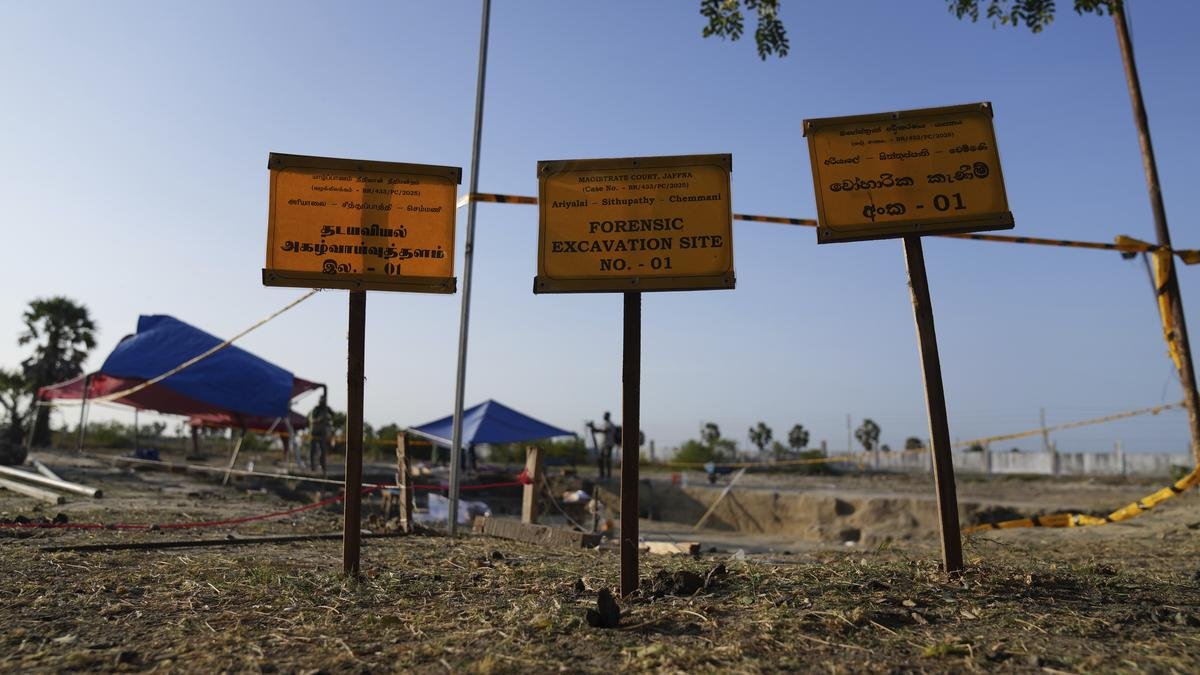
Signs in Tamil, English, and Sinhala languages are put up to demarcate an excavation area at the site of a mass grave in Chemmani, Sri Lanka, Aug. 5, 2025.
| Photo Credit: AP
Excavation work on the mass grave at Chemmani in Sri Lanka’s northern province has been halted pending fresh allocation of funds by the Justice Ministry, lawyers close to the operation said on Sunday.
Earlier this year, skeletal remains were discovered at Chemmani during a routine development, and excavations began under judicial supervision.
After 45 days of excavation work, the second stage of the work was halted at noon on Saturday, the lawyers said. So far, 240 skeletal remains have been excavated.
The funds for the remainder of the work are expected to be made available within the next two weeks, the lawyers said.
They said apart from the skeletons, 14 piles of bones and paraphernalia such as feeding bottles for infants, a doll, toys and children’s bags and shoes have been found.
The judicial medical officer has sought eight more weeks of excavations from the Jaffna magistrate, according to a report dated August 14.
At the next court hearing scheduled for September 18, the judicial medical officer will submit an expenditure estimate for two more months to the court, lawyers said.
Skeletal remains were discovered on February 13 this year at Chemmani during a routine development. A week later, the court ordered a judicial examination of them.
On May 15, the excavations began under judicial supervision.
The main Tamil party, Ilankai Tamil Arasu Kachchi (ITAK), said that the site presents clear evidence of war crimes and “a genocidal campaign against the Tamils”.
In 1998, Chemmani came under focus for an alleged mass grave, at the height of the conflict between the outlawed Liberation Tigers of Tamil Eelam (LTTE) and government troops. Around 15 skeletons were discovered then.
The three-decade-long armed conflict started in 1983 and was ended by the island nation’s military by killing the leaders of the LTTE in 2009.
The Human Rights Commission of Sri Lanka last week said there exists a “reasonable likelihood” that the burials at the Chemmani mass grave in the north were “unlawful” and had been caused as a “result of extrajudicial killings”.
Published – September 07, 2025 09:15 pm IST

